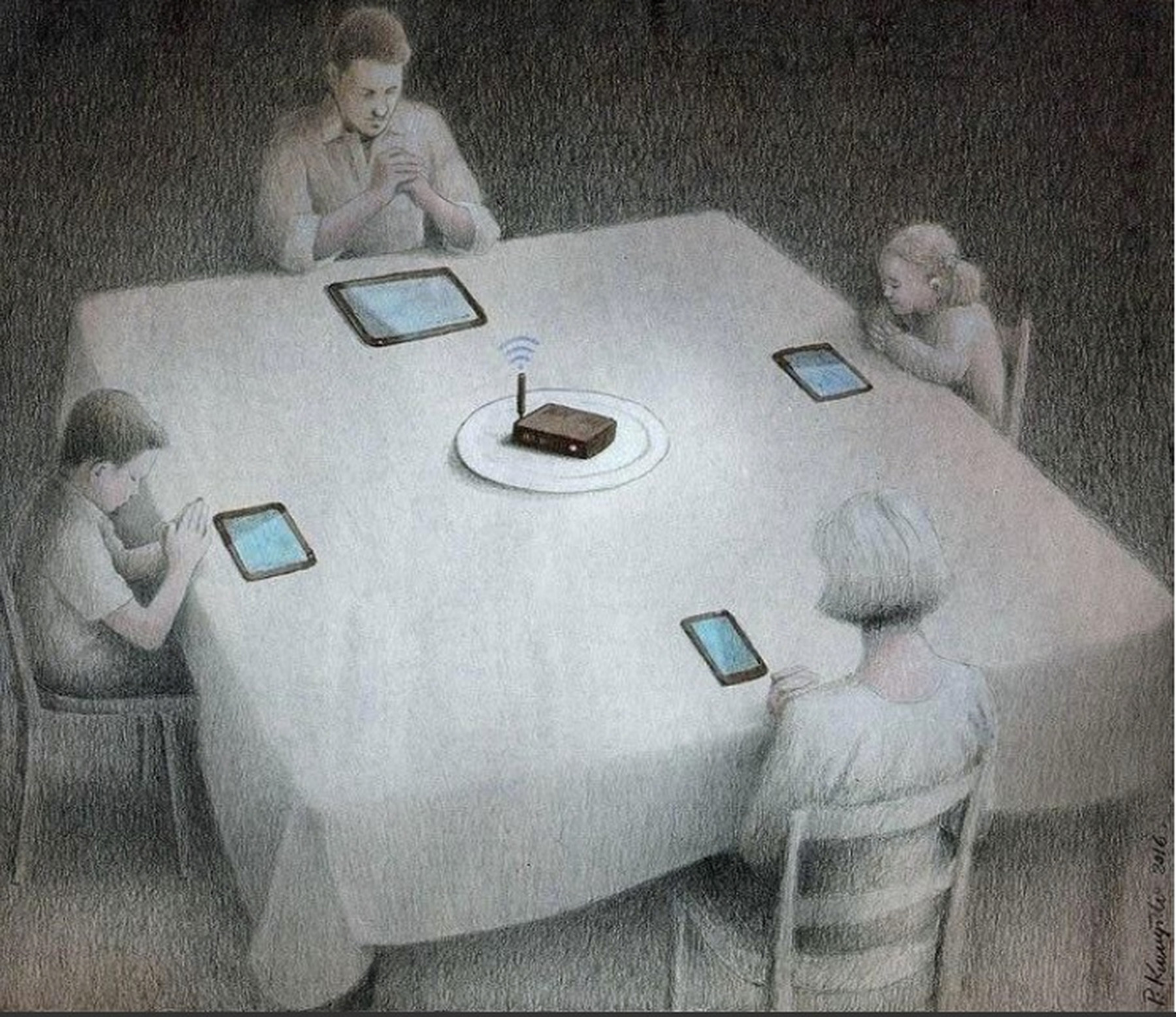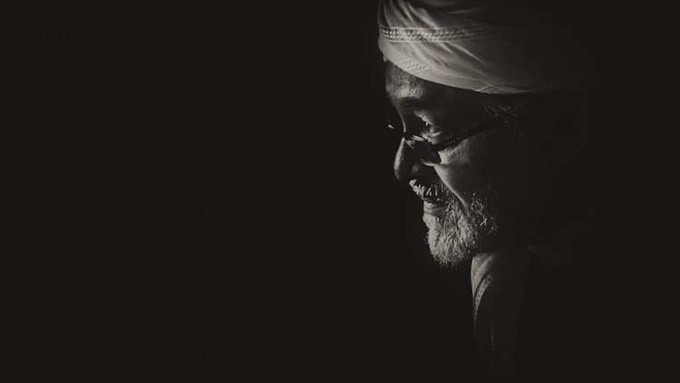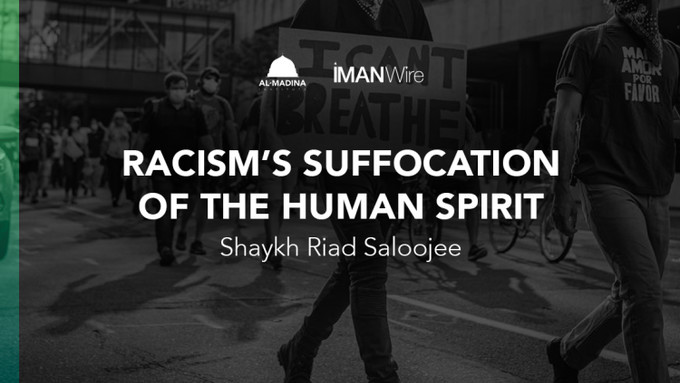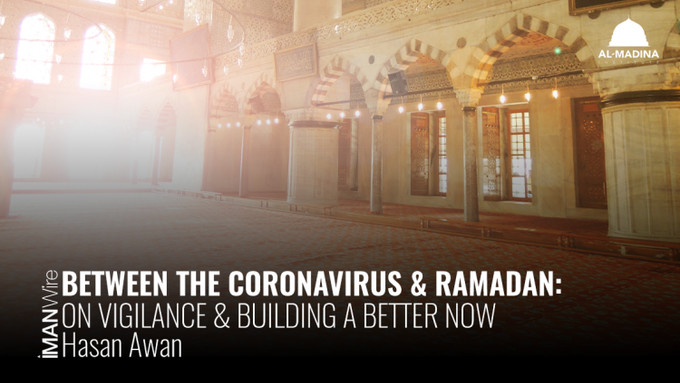Studying Arabic at the Al-Madina Suhba Program
By Naeem Saloojee
The Al-Madina Suhba Program is an eleven-month mentorship program with Shaykh Mokhtar Maghraoui taking place in Istanbul, Turkey. The program is designed to help families and individuals maximize their spiritual potential by embarking on a path of self-transformation while learning Islamic Sciences and Qur’anic Arabic. The program is a unique endeavor undertaken by Al-Madina and Ibn Khaldun University.
First Attempts at Learning Arabic
It was in the year 2000 that my wife and I set out on our first quest to learn the Arabic language. We travelled to the Middle East for 10 months to a blessed country studying amongst beautiful people. Nevertheless, I will always remember our first day of Arabic class at the city’s main university. The placement test left me in class 1B and thus I sat nervously on my seat hoping that I would not be called upon to answer any questions as my knowledge of Arabic was limited to reading text only with the diacritical marks and without any knowledge of the meanings behind those words. Our teacher insisted on calling one of the new students to the front and then persisted in her request for the student to construct a sentence. The student stood in the front of class, ringing her hands and then after about a minute of total silence, burst into tears. After that, the only sentence that was coming to my mind was a question, “Where is the door?”
A short while later, a knock was heard on the door of our class. Standing outside was the level 2 teacher with two students, brothers, who were lovely, humorous and a bit irreverent. In a loud ringing voice, that teacher announced that these two students had come to our class to explain what type of word comes after a preposition. In this case, the two students with her had provided an incorrect response in her class to what she thought was a rudimentary question and this was a rather firm sort of language instruction to make you never forget your grammar rules. Yikes. Let's fast forward nearly 20 years and four children later. Here again I sit in Arabic class trying to make some progress on a journey to understand the miraculous book of Allaah, the guidance of His noble Messenger and the writings of the luminaries of our faith throughout the ages.
An Arabic Program But Not Like Any Other
The Arabic program being held by Al-Madina at this year’s Suhba Program is unlike any other that I have attended or have heard about in the past. It is unique in so many ways and seems to operate directly under the directive of “Keeping it in the envelope!” Shaykh Mokhtar has addressed this concept many times throughout our journey so far. He has reminded us consistently that we need to be well aware of our internal state and always comport ourselves in the envelope or being aware of the Tawheed of Allah (subhanahu wa ta’aala) and of the necessity to remain tazkiyah-focused in our daily lives. The Arabic program had integrated these concepts into the very marrow of the program. The program's defining characteristic is one of ihsaan (excellence). In terms of facilitation, instructors, and pedagogy, nothing I have seen comes close to providing a learning and growth environment for the contemporary Muslim and Muslim family looking to learn Qur’anic Arabic in modern times, walhamdullillaah.
Director and Pedagogy
Before arriving in Turkey, I had heard many wonderful things about the Arabic program. I had heard that the director was a masterful instructor in his own right and that the process of finding our teachers was intensive and rigorous. Only later did I hear the exact numbers and they were impressive. Over 1,000 applications were submitted. The director, Dr. Ahmad Snobar, and his team chose the strongest 250 resumes to review. Of the 250 resumes that they interviewed, 20 were interviewed and 7 where finally selected. Upon meeting Dr. Ahmad and having him teach our class initially, a few things become obvious. He is a master instructor. A veritable Obi-Wan of Arabic Language instruction. Being one of the founders of Qasid (an Arabic learning program in Jordan), he has spent many years perfecting the teaching of Arabic to foreigners. Being in his class is like having a skilled mountaineer walk you by the hand through the difficult terrain and tricky steps of Arabic grammar and colloquial Arabic usage. Watching him teach is a mesmerizing experience — akin to watching a fountain where knowledge and insight are bubbled up in a continuous stream in front of your eyes. He has a thorough understanding of both classical and colloquial Arabic and joins between the two in way as not to alienate the one brought up on a colloquial dialect. He is generous, caring and extremely discerning. A quintessential teacher, he knows what makes a good teacher and what students really need to improve. He is hands-on and dedicated to the students’ betterment. He is present almost every day of class and I have seen him enter our classes on many occasions to quietly sit and assess the progress of students.
I was later to discover that Dr. Ahmad is also a scholar of hadith. To understand who Dr. Ahmad is, is to bump into him regularly and in a momentary short circuit of your brain, to ponder, do I call him Doctor or Shaykh? Do I the use the honorific title that articulates his vast comprehension of the Arabic language and Arabic instruction or do I use the appellation that highlights his deep and rigorous study of the hadith literature? Or, should I refer to him as “sidi” as a means to honor the beautiful humility of character and profound adab that he exudes while recognizing his ‘ilm (knowledge) at the same time. This is the director of Arabic studies.
The pedagogy being employed in the program is one that seeks to strengthen all the core skills a language learner needs: speaking, listening, reading and writing. Class discussions are a lively experience and the texts involved include traditional texts as well as more modern Arabic discourse. I have not been exposed to a program that seems to have been tailor-made to the student living in the 21st century but wanting to connect with traditional Islamic sciences. We are not learning in a vacuum. Relevance and applicability are consistently present in the Arabic material and objectives. Some students are working from contemporary grammar course books while others are covering the text of Imam Ibn Aajurum. Some students are doing class presentations on the history of their hometowns while others are presenting on the history of the Valide Atik mosque. It truly is mind-boggling. Imagine a class where your morning discourse involves discussing, arguing and writing a one-two page reflection on this:

And then moving on to read and discuss a tract from Imam Jurjani’s book on the miraculous nature of the Qur’an.
Instructors:
In addition to the director of the Arabic program, the other instructors are no less impressive. One of my first session instructors was a scholar of Shari’ah that was leading a group of people in Hajj shortly before starting to teach us. Currently pursuing his doctorate in Islamic Legal Theology, his guided assistance through classical texts was expertly completed. My wife and all my children can attest to the intellectual prowess and beautiful comportment of all our teachers. Each instructor is special in his or her own way and each of them has a distinct spiritual luster that makes them shine. They are all different shades of the rainbow that emanate from the attributes of the Divine and shines through the prophetic prism. The kindness of one. The care of another. What a beautiful scene it is to enter the courtyard of our school each day and to see these resplendent faces. The teachers, many of whom are natively from Syria, are not what you would expect from typical teachers. These teachers answer questions well into the evening on WhatsApp, will sit with you patiently after class to explain any obscurity you have and tell you that they love hearing your voice everyday in your Arabic recordings even if they are riddled with errors. I’m proof of that as my latest recording sounds more like a failed attempt at rapping with all the false starts and prolonged silence. No beats are dropped let me tell you.
A Look at a Current Instructor
It was in my end of term review consultation with Dr. Ahmad that we discussed possible teachers for this semester’s classes. Dr. Ahmad described one of the possible choices as “an encyclopedia”! Remember, this is coming from a scholar of hadith and so don’t take it lightly. Subhan Allaah, our current Arabic teacher for this semester is a study in beauty and he turned out to be the encyclopedic persona that Dr. Snobar indicated. Younger than me in age, he is well beyond his age in maturity, manners and knowledge. Turkey is a beautiful country and it is pregnant with a varied and profound historical narrative. Often, elements in its historical narrative rush back to me even in class. I often think to myself that if time were reversed and if we were at the time of a sultan, our Arabic teacher would be his murabbi (the guardian of his spiritual and mental upbringing). Our Arabic teacher has an unassuming nature, is blessed with a weighty portion of humbleness, and has the erudition of a man of letters. He often has all of us spellbound with us holding on to each letter of his speech as if only the next word he utters that would slake a deep thirst we all have inside of us.
Our teacher’s plan for this semester for the students was stunning. It includes a weekly perusal of some short texts covering most of the major Islamic sciences. We have the miraculous nature of the Qur’an one week, tafseer next week, the seerah, tasawwuf, and more to follow. Every day is a glimpse into the resplendent nature of our deen and the heritage of our masters. Our first two weeks have seen us delving into the miraculous nature of the Qur’an. This week we covered short tracts on the linguistic miracle, the scientific miracle and well as the legal miracle in the Qur’an. We discussed the concept of miraculousness by Shaykh Muhammad Shakir. Perhaps, with my dictionary and much time and effort, I could have accessed some of the meaning in these texts but they would have appeared to me like a stick drawing of words and forms and verb tenses. Walhamdullillaah for our teacher. He is no less than an artist with the Arabic language. Everyday he enters class and paints an incredible picture of deep intellectual profundity. He paints with the watercolors of Arabic symbolism. The pastels of the Divine miraculousness. He paints everyday on the canvas of the hearts and he leaves us with little masterpieces of literary splendor to covet and pore over for years to come. Our teacher’s explication of the Arabic language is like the turning of a key. The explanations are steadily opening of the door of wonder and amazement.
This week, our teacher mentioned a recently published text that highlighted the miraculous nature of the Qur’an. Part of the author’s thesis was that the language of the Qur’an employed Arabic in novel ways though still employing the basis of the meanings of those words. Imagine an Arab of that time listening to a 30-word surah that employed over 50 different grammatical constructions and usages! Image the sheer weight of that miracle of the minds and hearts of those that heard it! Then, at the level of word meaning and at the subject matter level, the Qur’an continues to provide new, powerful and thought-provoking meaning and messages. Though an incredible week of Arabic learning and growth, it has been so much more. The Arabic program has not been about language, for language. It has been about something so much more meaningful. It has been about gaining access to the key that Arabic is, to access the meanings of subtle knowledge meant to purify, shape and mould hearts to be in a persistent state of health and beauty.
Closing Thoughts
The Arabic program is really only the tip of iceberg. I get to attend classes with my spouse and I get to step out of class at break time to see two of my children emerging from other classes or to greet the two younger ones after class as they emerge from the program specifically designed for them. The youngest two sometimes will hymn al- Qaseedah al-Muhammadiyah that they recently memorized or the eldest can now ask for lunch money in Arabic to vary it up a little. We are studying this language, selected by Allaah to be the means of communication of His final message, together as a family. We get to go home and practice together. We get to share insights from what we’ve learned and we get to do this with people and families from across the world that are all dedicated to internal change and emulation of the prophetic legacy in action and in speech. Allaah’s grace is immeasurable and I pray that the organizers and the blessed land in which we are learning are always protected and kept under His Divine care and protection. The question in my mind in this Arabic class is now, “Kayfa ‘ugliq al-bab min daakhilihi?” Roughly translated, “How can I lock the door from the inside?” When inside it, I just don’t want to leave it.
Life & Culture Related Articles

Shaykh Seraj Hendricks: Obituary
An internationally recognised Islamic scholar, who saw spirituality, justice, and knowledge as integral to an authentic religious existence. Shaykh Seraj Hendricks, who passed away on the 9th of July 2020 at the age of 64, was a scholar of international repute, able to communicate and engage on the level of state leaders, religious scholars and the broader public.

Racism’s Suffocation of the Human Spirit
I can’t breathe. George Floyd’s last words, conveying, verbatim, Eric Garner’s last words, with echoes through a long chain of souls – Breonna Taylor, Michael Brown, Walter Scott, Freddie Grey, Jamar Clark, Alton Sterling, Stephon Clark and Botham Jean – is a testamentary call that should pierce every Muslim’s mind and heart.

Between the Coronavirus & Ramadan: On Vigilance & Building a Better Now
I pray that, as we continue to lovingly welcome and vigilantly discover the blessings inherent in Ramadan upon us, we awaken to all the moments and especially the moment that Allah has chosen to place us. A quotation from Charles Dickens, the opening to one of his novels, is worth reflecting on: “It was the best of times, it was the worst of times.”